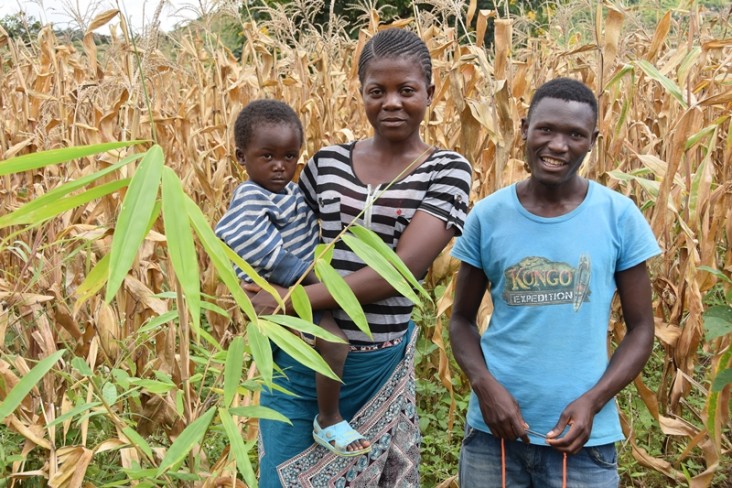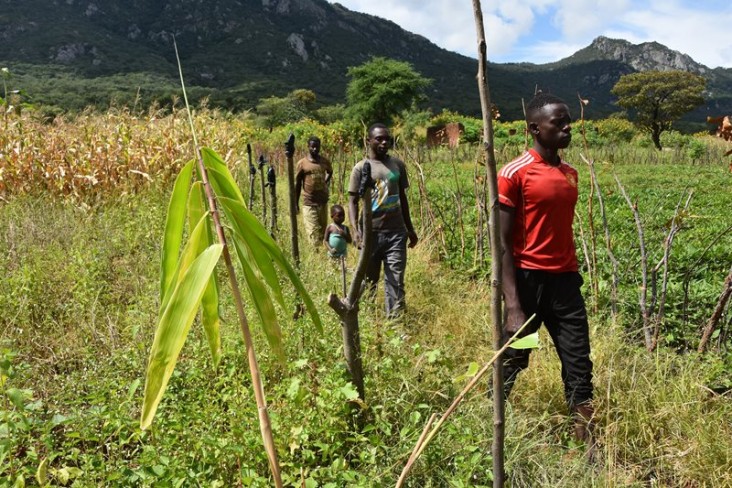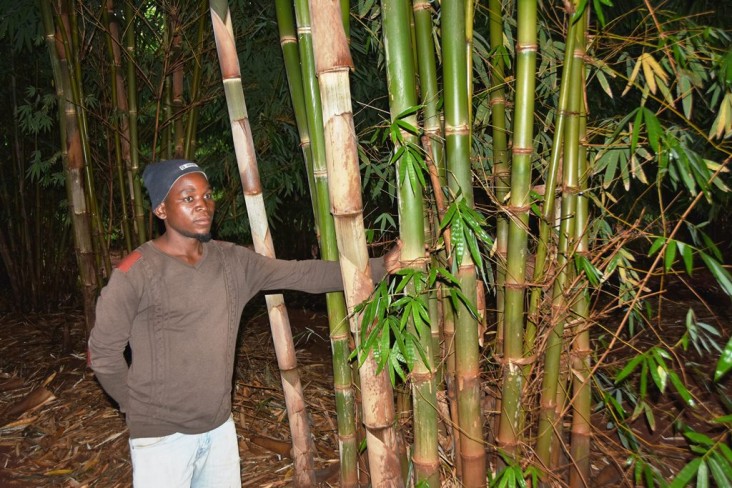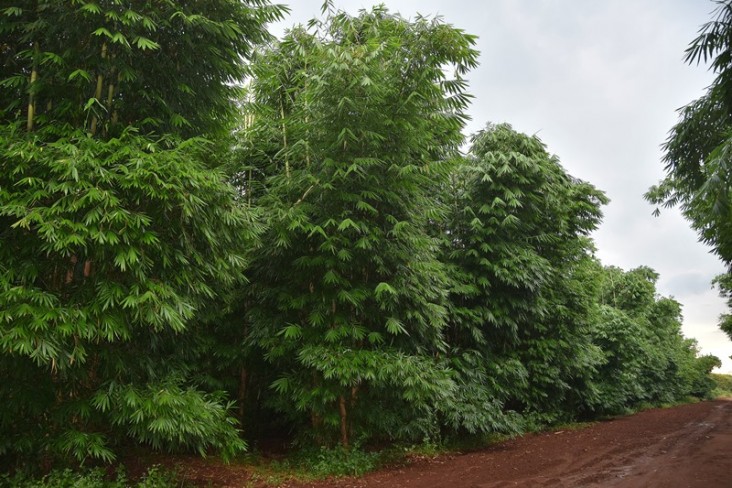Speeches Shim

"The future looks good for our community. Bamboo has many benefits." - Patricia Jime, Dedza, Malawi
It is a question that needs to be asked while reasonable solutions are still within reach. Between 2004 and 2017, Malawi lost an estimated 1.7 percent of its forest cover every year, and according to Zacharia Magombo, Principal Scientific Officer at the National Herbarium and Botanic Gardens of Malawi, the demand for fuel wood will exceed the number of trees that can be regenerated in the country’s forests, farms and tree plantations within the next five years. As more and more trees are cut down to meet fuel and construction needs, deforestation is leading to increased soil erosion, more flood and drought events, and reduced crop productivity. Using firewood and charcoal for cooking fuel is the number one driver of deforestation, as 90 percent of Malawians do not have electrical power or other sources of energy with which to cook. Add to this the fact that Malawi’s population is growing rapidly, and the question of trees and forests in Malawi takes on an existential urgency.
In recognition of the dangers posed by deforestation, the Government of Malawi has established a goal of protecting existing forest cover, and reforesting 500,000 hectares of degraded forest land by 2030. These objectives, however, will only be possible if pressure on the remaining trees and forests can be eased. Hardwood trees can take decades to mature, and Malawians need an alternative that will allow them to stop cutting down trees from the nearby forest now.

To address the challenge, USAID’s Feed the Future Malawi Ag Diversification Activity (AgDiv) identified Dendrocalamus asper, a non-invasive species of bamboo that takes only 5-7 years to mature, and which can be sustainably harvested after as few as three years. By providing a short-term source of cooking fuel, the bamboo reduces pressure on forests and woodlots, allowing indigenous woodlots to regenerate. Bamboo can also be an excellent tool in watershed management, controlling run-off and reducing erosion. With only five to six bamboo seedlings an average household can meet their fuelwood needs for more than 60 years, making the bamboo highly cost effective. An investment of $18 is enough to supply a household with 10 bamboo plants; meeting their cooking fuel needs, and also generating an additional $160 per year if the household sells surplus fuelwood.

But why will this solution stick? There have been many other interventions to try to slow deforestation, including alternative fuels and efficient cook stoves. Patricia Jime is a mother of two and a smallholder farmer producing groundnuts, maize and tomatoes in the village of Nthenga. For Patricia and her family the day begins with a breakfast cooked using firewood. The firewood she needs is too expensive to buy (an average family requires $250 in firewood per year, whereas the average annual income in Malawi is $338), so she must collect it from a nearby mountain.
Deforestation means she now must travel much farther to find firewood: “We always have to go up the mountain to fetch firewood, which is very far. I leave home as early as 4:00 am and I arrive back at 6:00 pm...I return home very tired with a bad backache and sore swollen feet. Before I can even begin to heal properly, the firewood runs out and I am forced to make the trip again.” With Bamboo, Patricia will be able to walk into her back yard for her cooking fuel, and she is excited about the collateral economic opportunities that bamboo will provide: “The future looks good for our community. Bamboo has many benefits. We can used it for both furniture and construction industries. It will also ease the pressure on the few available trees and help us to sustain the environment. If our fields are not eroded, we will be able to produce more in our farming which will improve our food security.”

This year, USAID through it’s FTF Agricultural Diversification (AgDiv) activity has purchased and distributed over 180,000 seedlings which beneficiaries have planted in households’ gardens, community woodlots, and along watershed buffer zones. Seedlings are most vulnerable during their first year of life, frequently falling victim to hungry goats or insufficient watering. AgDiv recently completed their first assessment of how the initial plantings are fairing, however, and discovered a 95% survival rate. This makes clear that Patricia, her neighbors and other Malawians place a very high value on the bamboo as a solution to one of their most basic household needs. With the early success of bamboo, other NGOs and private sector partners have stepped in, pledging to distribute 5 million bamboo seedlings by 2021.
By 2025, these bamboos will be able to meet 20 percent of current fuelwood demand for the entire country. Two separate studies found that Dendrocalamus asper stores 173 and 264 tons of aboveground carbon per hectare - significantly higher than the typical indigenous miombo woodland. Additional benefits include creating economic opportunities for smallholder farmers, improving watershed management, and opening the space necessary for natural and programmed reforestation.

Comment
Make a general inquiry or suggest an improvement.